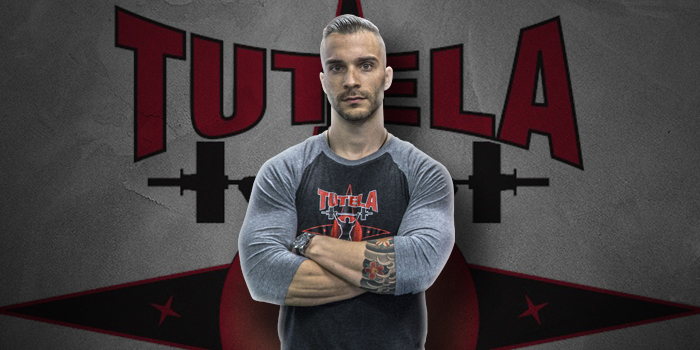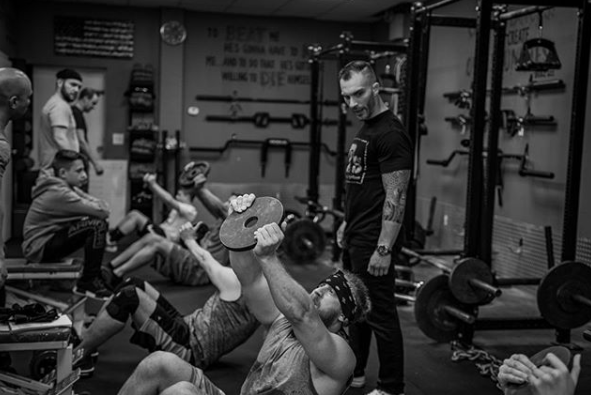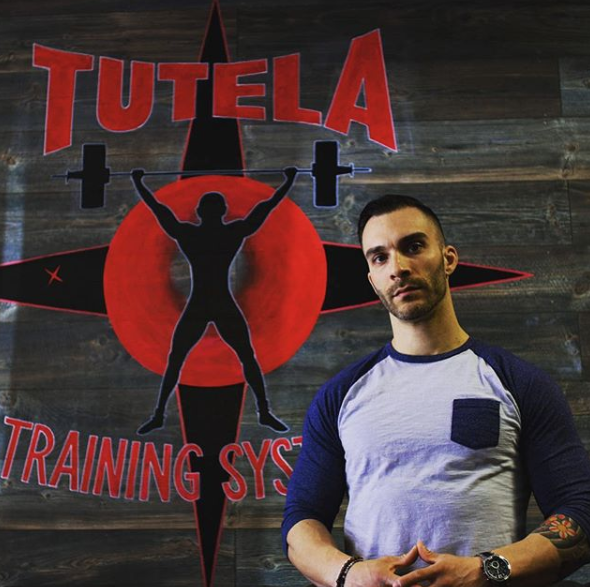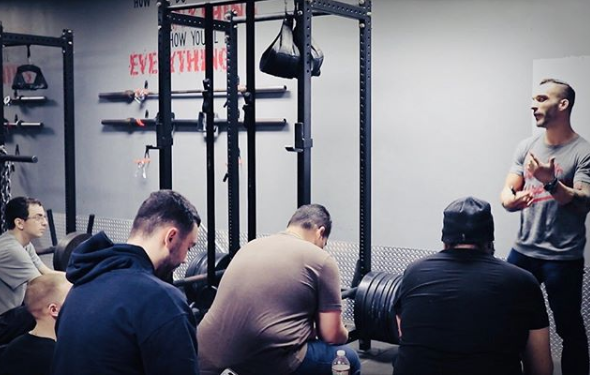
I’ve learned some valuable lessons from the fitness industry over the last 14 years.
One of the biggest lessons I have learned is the importance of enhancing your skills as a leader.
Before I get into the lessons I’ve learned, I want to preface this article with where I once was and where leadership has taken me throughout the years.
Let’s rewind to 2008.
RECENT: 66 Lessons for Freedom, Happiness, and Physical Excellence
I was two years into my training career, and to paint you a picture, I was broke, unhappy, unfulfilled, insecure, and lazy. My brother’s drug addiction consumed me and took up the majority of my focus.
Sometime in late January, my friends and training partners convinced me to step up my training and diet. You may have heard this story before, but if you haven’t, the next few months led to the pivotal shift my life desperately needed.
But what I didn’t realize at the time was that outside of my athletic days, that moment in time was my first experience with leadership.
That time in my life truly taught me the fundamentals of leading others. The more I learned and grew, the more I realized how little I knew about being a leader.

It took time and a whole lot of failures for me to learn these core principles of leading others. But they are what helped me grow my business to over 160 members and a team of four others working alongside me.
Which brings me to the first lesson of leadership.
Lesson 1: You must lead from the front.
You can have all of the training and nutrition knowledge known to man, but knowledge alone does not make you a good leader. In order for people to follow you, you must lead by example. The best way to influence others is to do the work yourself and inspire other people to do the same rather than simply barking out orders.
Back in ’06 and ’07, I didn’t have much influence over my clients. They trained hard when they showed up, but they weren’t always consistent in their training or their nutrition. At the time I called them lazy, but I recognize now that it was me that was the problem. Not them.
Sure, your clients need to stay committed, but you cannot expect them to stick to the plan right from square one. A true leader will guide people to where they need to be, rather than just expecting them to listen to you.
Once I changed myself, my clients were more adherent to their training and nutrition programs. At the time, I didn’t connect the dots, but looking back, I now realize that they were inspired by my change and saw that change was possible for them as well. This compound effect opened the door for them to inspire other people in their own lives as well, which is an indirect result of quality leadership.
Lesson 2: A good leader communicates exceptionally well.
Don’t expect your clients or staff to know things, even if it seems simple or like common sense. To lead effectively, your communication needs to be clear and concise.
As a gym or business owner, you must be very specific with what and how you want things done. Systematize everything, explain with clarity, demonstrate, and ask the people you are trying to teach to show you.
RELATED: We Pick Things Up and We Put Them Down
Keep in mind that this doesn’t mean you should be a condescending prick. You can communicate in a way that helps people truly grasp what you’re trying to teach them and make it clear to you that they got it.
Early on in my business, I expected my coaches to just know. When I found out that they didn’t “know,” I would get pissed off at them, which resulted in a toxic environment.
I had the wrong way of thinking.
I learned that nothing should be assumed and that the primary objective must be kept in mind. If something wasn’t done correctly, I am to blame, because I could have done something better.
Adopting that mindset has led to a stronger team and a stronger business.
Lesson 3: A good leader makes fast decisions.
In my early years in business, I was very indecisive.
“Should I do this or should I do that? I’m not sure. I don’t know.”
So I’d wait.
And so I would wait, and then the decision would be made for me by circumstances that were created by my indecisiveness.
That happened in my business and my life. I realized that when I made a fast decision (with some thought, of course), things would move forward, even if it were the wrong decision. If it were the wrong decision, I either made some sort of progress or I learned something important. By the point I realized that I made the wrong choice, I could then change the plan and continue to move forward.
Sure, I’ve made my share of bad calls (and still do), but the result is never worse than when I made no call at all.
Leaders decide and take control. If it’s the wrong choice, course correct.
Lesson 4: A good leader will delegate.
You can’t do it all alone. Good leaders understand that. The best thing you can do for your business is to delegate the tasks that you’re not good at or that take up so much of your time you can’t focus on what’s really important.
I love coaching and got into this business to coach and train people. But I can’t be on the gym floor coaching every training session these days. Not if I want to impact the number of lives that I plan to.
Hiring coaches isn’t only helpful to me; it creates a job and opportunity for them.
READ MORE: How to Build Careers for Other Coaches
It gives them a chance to live the life that they want and impact more people.
It gives them the chance to become better coaches.
As far as cleaning toilets, scheduling appointments, and running Facebook ads, you shouldn’t be doing that. Instead, pay someone else to do it, and spend your time on the things that only you can do.
For me, that’s creating content, recording my podcast (The Iron Life Podcast), writing articles, training my team, planning, and creating systems while still having a life outside of work.
You only have 24 hours in a day, so relentlessly manage your time and hire people who can do the simple time-consuming tasks of your business.
Lesson 5: A good leader is emotionally resilient.
At times, shit will go wrong. That’s inevitable. You must embrace the fact that things won’t always be pretty and prepare for the butt mud to hit the fan because at some point, it will.
And when it does, you need to keep your cool. You need to think logically rather than react emotionally.
You need to keep your composure when an employee screws up.
Keep your cool when you lose money on a campaign that didn’t perform well.
Your coach didn’t show up to a training session because he overslept? Take a breath.
You have to take the screw-ups on the chin from time to time and learn how you can fix the problem going forward.
Set clearer expectations. Communicate better. Design a better campaign.
Do what needs to be done in order for that problem not to happen again.
And then… prepare for the next problem to happen.
Your emotional resilience is going to be a key factor in the success of your business.
Lesson 6: A good leader will hold their team accountable.
Sometimes, you need to have those tough conversations.
But when there is an issue that needs to be addressed, keeping quiet is not going to help. And worse, holding your thoughts in will eventually lead to resentment, which will lead to an even bigger problem down the road.

There are going to be problems with your team, but they don’t have to be catastrophic. The bigger problems typically happen when you don’t communicate your expectations thoroughly.
LISTEN: The Iron Life Podcast #16 with Bedros Keulilian
This doesn’t mean that you have to be a dick, but it does mean that your team should be held accountable to the standards you set.
Remember, you get what you tolerate. When you see an issue with your staff, address it, respectfully and professionally. Your employee may not even realize what they are doing wrong, so they will either make a change or you may have to part ways with them. Either way, the issue will be resolved and you can stop putting your time and energy into the problem and focus on the growth of your business.
Lesson 7: A good leader never stops learning.
The four most dangerous words you can say for your growth as a trainer, coach, or leader are “I already know that.”
If you want to be great you must adopt the white belt mentality. In the very ego-driven industry that is strength and conditioning, it’s very easy to think you know it all. But you don’t. Neither do I. We can all learn something from each other.
The best coaches I know are constantly striving to get better.
Attending courses and events, reading books, hiring coaches, and doing all sorts of personal development work is what needs to be done to excel in any industry. Not just strength and conditioning.
I don’t care how long you’ve been in the game, what you’ve done, who you’ve worked with, or how much you know; there is still plenty of room to improve.
And that never stops, nor should it!
We should all strive to get a little bit better every single day. That goes back to leading from the front. If you want to inspire others to get better, why would you remain stagnant?
If you want to be a great leader, you cannot be a hypocrite.
Do what is required to be great and learn from others in your field every single day.
Those are my seven pillars of leadership. I truly hope this article helps you.
Begin applying them today and keep me posted on your progress.
Like my friend Bedros Keuilian says, leadership is the problem, leadership is the solution.
Thanks for reading.













2 Comments